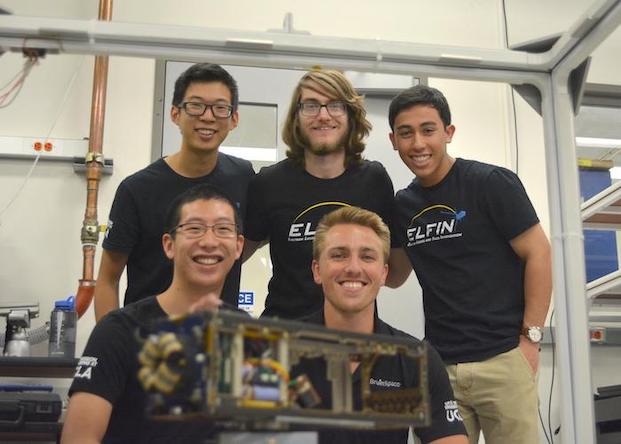
Overview
Position: Lead Software Engineer
Location: Los Angeles, CA
Platform: Embedded Systems
PIC Microcontrollers: PIC18, PIC24
Languages: C++, Python
IDE: MPLAB
Period: Aug 2018 - Oct 2018
Background:
The Electron Losses and Fields Investigation (ELFIN) 3U+ CubeSat is a satellite being built by the Earth, Planetary, and Space Sciences department at UCLA, and will be UCLA's first satellite. The main objective of ELFIN will be to explore the mechanisms responsible for the loss of relativistic electrons from the radiation belts. ELFIN is funded jointly by the NSF and NASA CubeSat programs and has been a participant in the AFRL's University Nanosatellite Program.
The ELFIN team consists of around 20-30 students and 10 faculty and is composed of several subsystems (i.e. the Command & Data Handling Software Subsystem, the Missions Subsystem, the Operations Subsystem, etc.).
Details:
After several months of working as a software engineer under the CNDH subsystem, I was promoted to lead software engineer of the entire ELFIN mission. In addition to my continued development of the flight software, my promotion to lead software engineer made me responsible to oversee the development of all of the flight software by the other CNDH software engineers. In addition, I oversaw and provided guidance to the other CNDH members, lead subsystem meetings (composed of CNDH software engineers and the lead faculty), and worked closely with the other subsytems to design the software to meet the specific scientific needs of the mission.
The highlight of my time as lead software engineer for ELFIN was the success of our spin test at Aerospace Corporation in Space Park, Los Angeles, CA. I developed spin control algorithms to control the attitude determination and orientation of the satellite, and the spin test verified the correctness of the software.
Read more in my ELFIN blog entry
